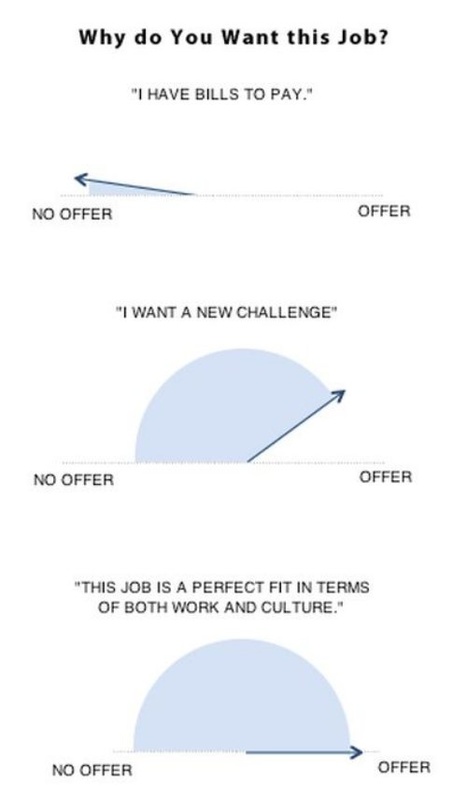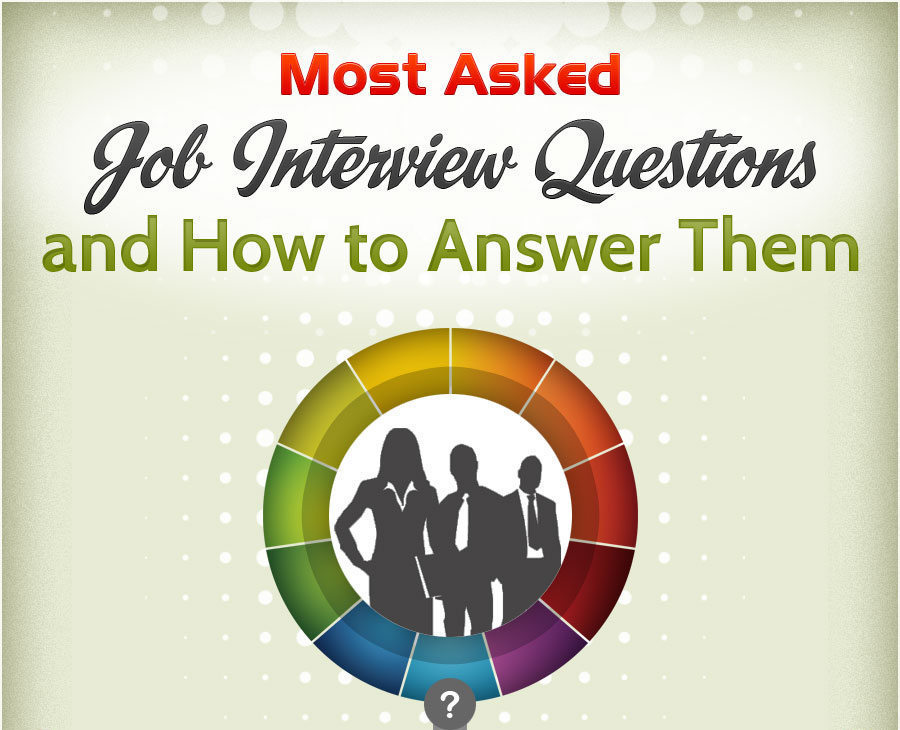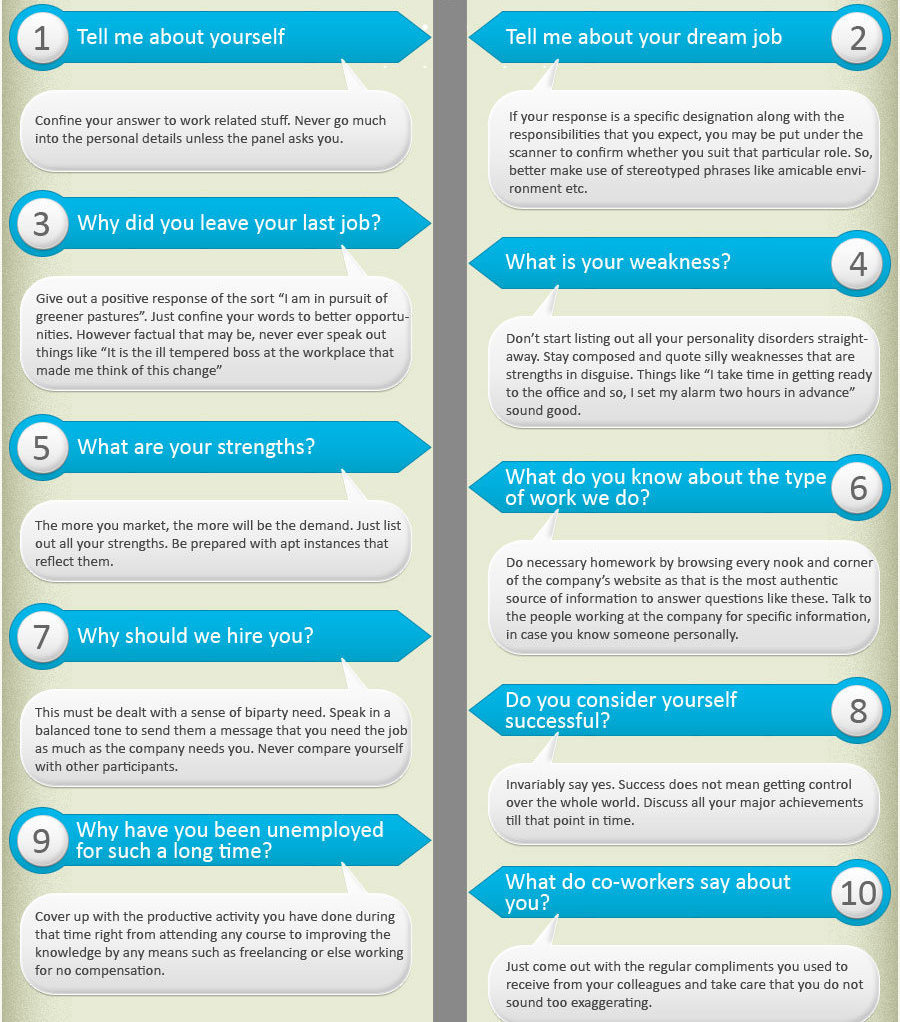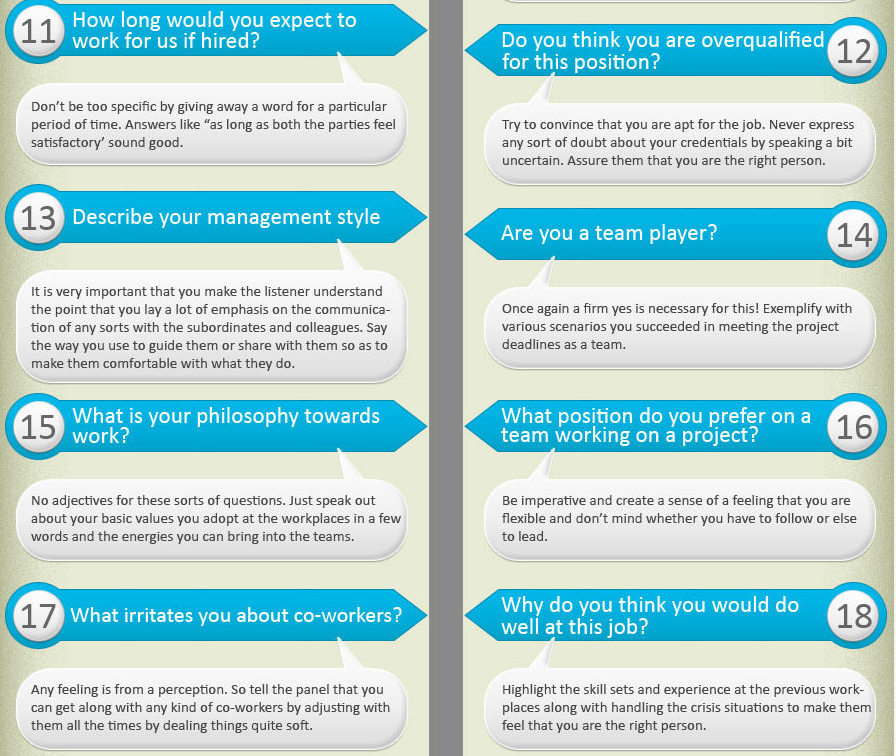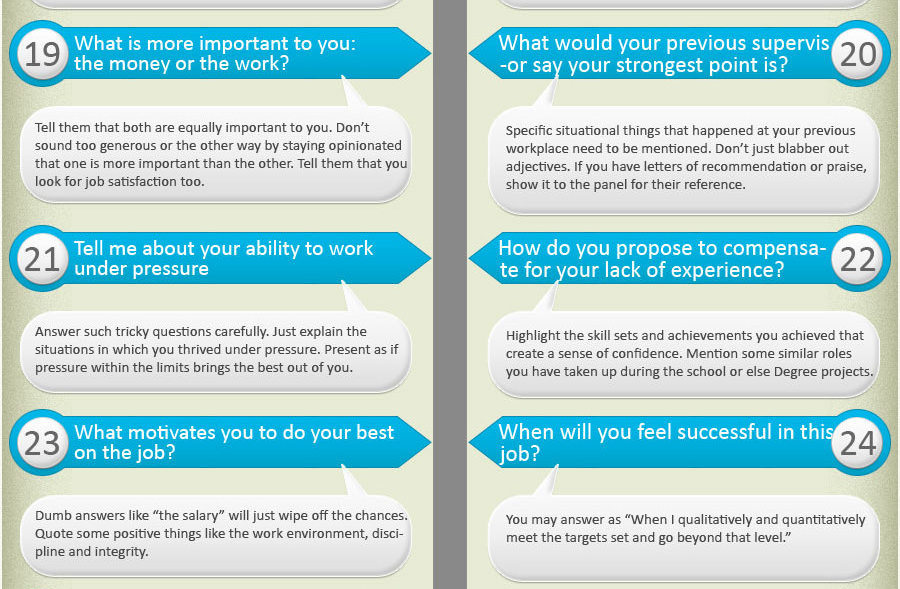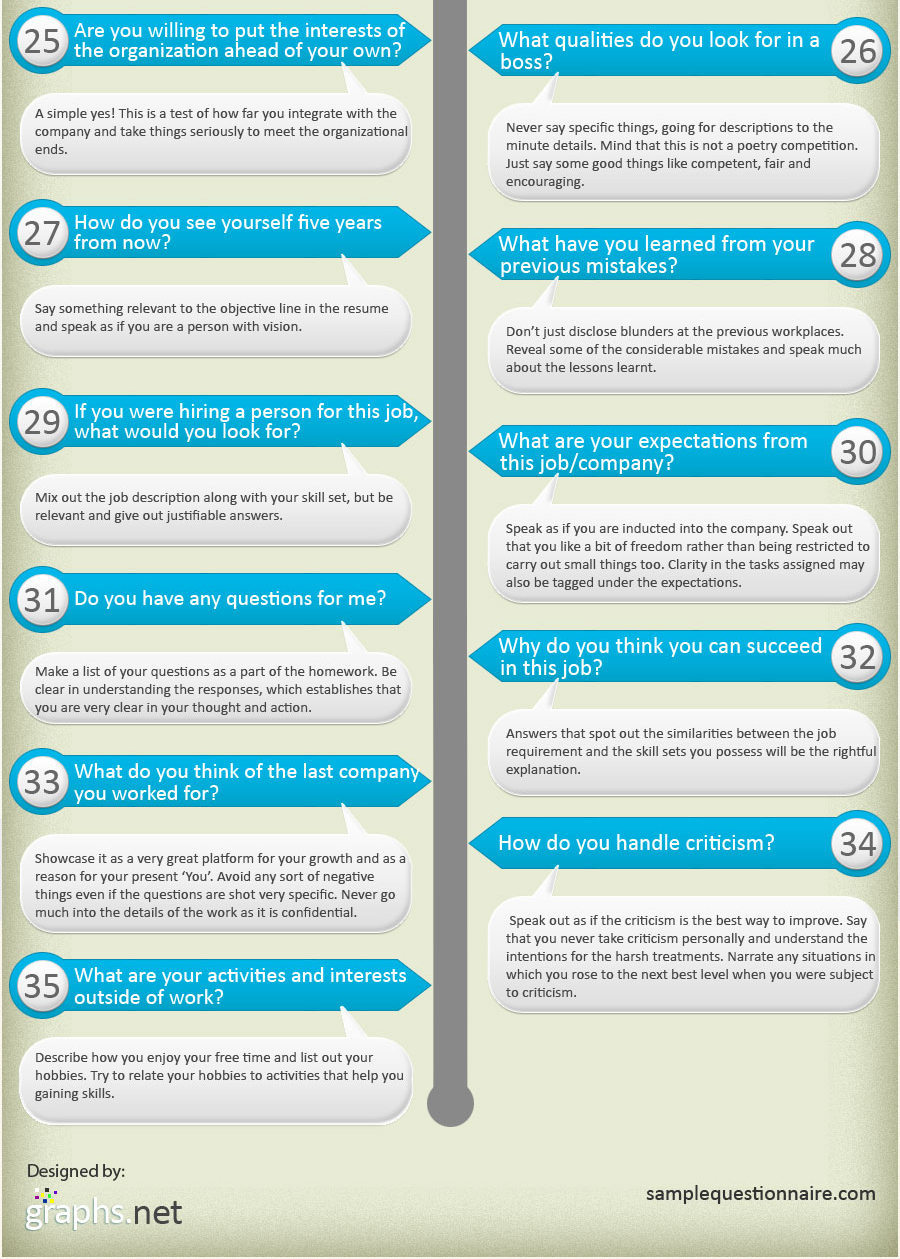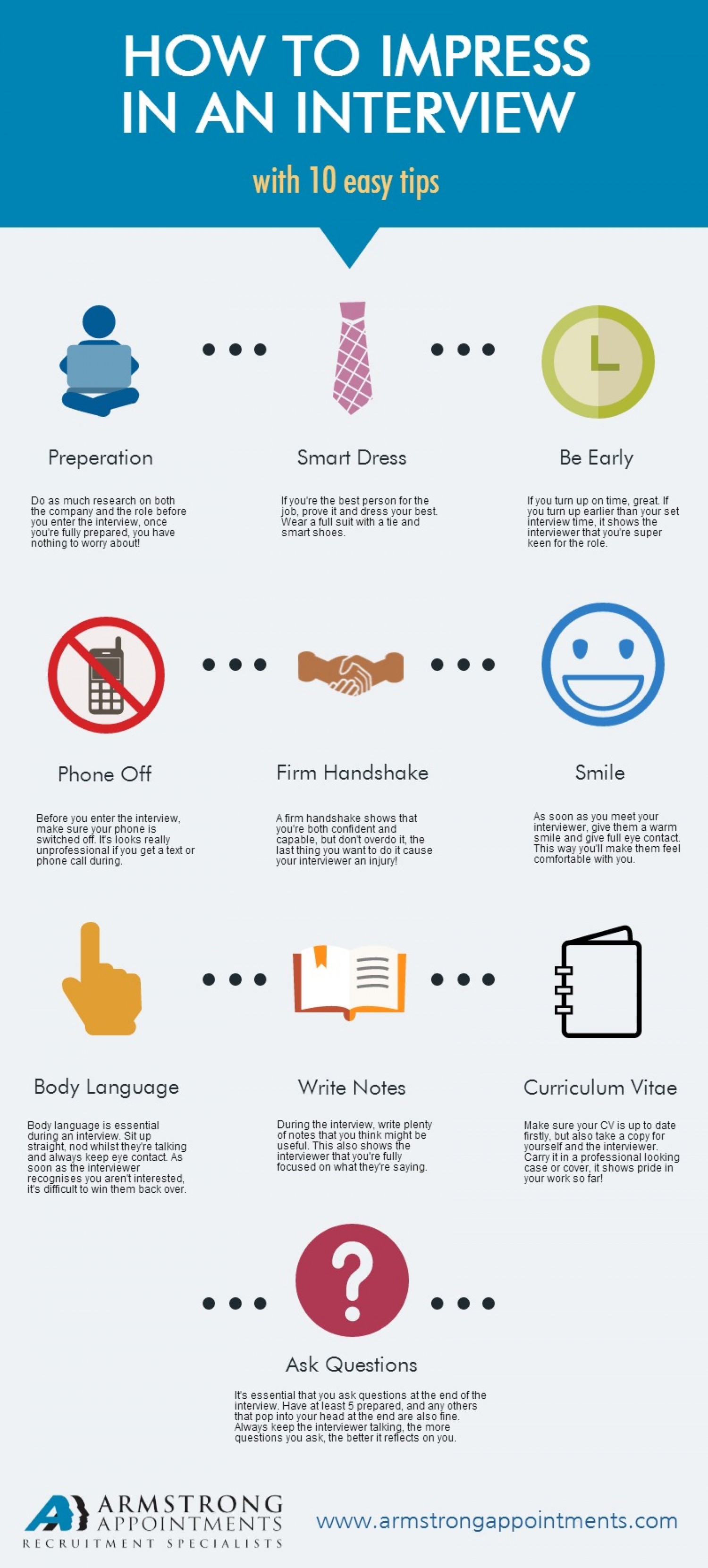46
Winning Interview Techniques / How to Ace an Interview: 8 Expert Tips
« on: March 24, 2020, 04:49:21 PM »
Getting a job offer is not just about your experience and qualifications, but how you present yourself as a whole package. Your experience and qualifications will help you get the interview, but personality and cultural fit matter just as much.
I’ve worked in recruitment for 13 years and I’ve often seen situations where the candidate who gets the job isn’t always the most experienced one. Instead, they’re the one with the best attitude and who’s really learned how to present their experience as being the solution to the employer’s problem.
Remember, in order to get to the interview stage of the job-search process, you must have terrific application materials. If you aren't sure yours are up to snuff, use a resume builder to create a document that will get you into the interview chair.

Expert Tips on How to Ace an Interview
1. Do your research
It goes without saying that you should research the company. Ideally, you want to go into the interview with some information they don’t expect you to have. Of course, you should know as much as possible about the organization, including the basics about the company’s products, services, and culture. Also, do a Google search and have a look at recent press releases and the latest company news.
Research the interviewer, as well. Look on Google and LinkedIn to learn about their background and to see if you can find something in common with the interviewer. Also, know everything there is to know about the qualifications and qualities that the employer seeks for the position.
2. Have a positive mindset
Most of us get a bit nervous before a job interview. Remember, though, that the interviewer wants you to do well! You wouldn’t have been invited to the interview unless they thought there was a real potential for you to do the job.
Shore up your positive mindset through preparation. Being ready for the interview will help in reducing your nerves. Ask yourself, what’s the worst-case scenario here? If you don’t get the job, it’s not the end of the world; there will always be other opportunities.
Do your homework, be as prepared as possible and just do your best, but don’t put too much pressure on yourself. There are many elements of interviewing that are beyond your control, so try not to worry about things that you have no influence over.
3. First impressions count
While they aren’t always accurate, first impressions matter when learning how to ace an interview Make sure you arrive on time, are appropriately dressed, and greet receptionists and assistants warmly.
Give a firm handshake when you walk into the interview room and smile. A genuine smile makes a great first impression and shows you’re happy to be there.
Make sure you maintain good eye contact as well. I’ve seen people who barely keep any eye contact during interviews. It’s likely because they’re nervous but it can make a candidate come across as disconnected and uninterested.
4. Practice your responses
Another tip on how to ace an interview: the more you prepare for the questions you may be asked during an interview, the more you’re likely to succeed. Prepare your answers to common general and competency-based interview questions that are related to the job title you’re interviewing for.
I don’t recommend memorizing your responses but I do suggest prepare some examples and anecdotes in advance using the STAR format to help you remember the key points you want to get across. It’s a good idea to practice your interviewing style and responses with an interview coach or a friend. After all, the more you prepare the more confident you’ll become.
5. Prepare examples and metrics
My top tip on how to ace an interview is to dive deep into examples from your background that really demonstrate how your experience will translate to the position at hand. Employers want to know more than about your past job responsibilities; they want to hear about your results. Think about your most impressive achievements that are relevant to the position.
This is not about bragging. Rather, it’s about demonstrating the value you’ll add to their workplace. Talk to them about how you’ve made an impact in your current and previous roles and quantify your experience as much as you can.
Think about what people have praised you for in the past, the good feedback you’ve received, times you’ve made or saved money for your company, or streamlined a procedure. The more you can quantify your achievements and back up what you’re saying with examples, the higher your chances of getting the job.
Finally, while most employers might not directly ask you how you work with others or how quickly you learn, they’ll be listening for signs of that throughout your interview. When giving your examples, you might want to talk about a time you’ve worked collaboratively on a project or where you’ve learned some new skills in your job. You’re not expected to know everything but demonstrating willingness to learn is an attractive quality in a candidate for a job.
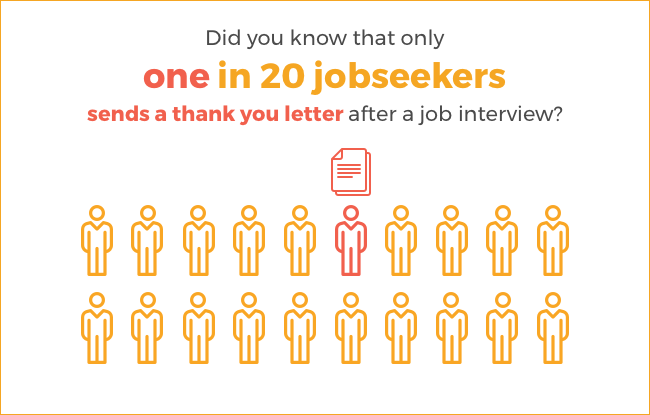
6. Ask the right questions
You should always have a few questions prepared to ask at the interview but make sure you do NOT ask questions that you can easily obtain from conducting basic Internet research. When interviewing with your prospective manager, ask questions such as, “What are the key priorities you want the new hire to accomplish?” Or, “What do you expect your new hire to achieve in the first few months?“
Remember that an interview is a two-way street so you should also ask questions that will help you decide if this company is the right fit for you. Finally, if it hasn’t been discussed earlier, you can ask about timelines and next steps in the hiring process.
7. Send a thank you note
How you perform in the job interview is a deciding factor whether you’d get the job, however, an authentic and timely thank you note could be just the thing that pushes your candidacy above another equally competent candidate who does not bother with a thank-you. Whenever possible, send a short and professional thank you note via email. This is also a good time to emphasize key points highlight your fit or mention a key point you forgot to make in the interview.
8. Stay positive
It may seem like an obvious tip to stay positive in a job interview, but it can be tough to do that when describing challenging situations from the past, such as being fired or managing difficult bosses. Show the employer that you can maintain a positive attitude about challenging situations and environments, and they'll see the resilient and flexible individual they're looking for.
Final Thoughts on Job Interview Success
Showcasing your research, knowledge, skills and accomplishments — and winning over your interviewer with your expertise charm and passion — will go a long way to helping you to how to ace an interview. Follow the eight suggestions outlined in this article and you’ll be on the path to career success.
Source: https://www.pinterest.com/pin/166844361182374734/?utm_campaign=rtpinrecs&e_t=abce503d0cb14b14942d486584ee9a88&utm_content=166844361182374734&utm_source=31&utm_term=11&utm_medium=2004
I’ve worked in recruitment for 13 years and I’ve often seen situations where the candidate who gets the job isn’t always the most experienced one. Instead, they’re the one with the best attitude and who’s really learned how to present their experience as being the solution to the employer’s problem.
Remember, in order to get to the interview stage of the job-search process, you must have terrific application materials. If you aren't sure yours are up to snuff, use a resume builder to create a document that will get you into the interview chair.

Expert Tips on How to Ace an Interview
1. Do your research
It goes without saying that you should research the company. Ideally, you want to go into the interview with some information they don’t expect you to have. Of course, you should know as much as possible about the organization, including the basics about the company’s products, services, and culture. Also, do a Google search and have a look at recent press releases and the latest company news.
Research the interviewer, as well. Look on Google and LinkedIn to learn about their background and to see if you can find something in common with the interviewer. Also, know everything there is to know about the qualifications and qualities that the employer seeks for the position.
2. Have a positive mindset
Most of us get a bit nervous before a job interview. Remember, though, that the interviewer wants you to do well! You wouldn’t have been invited to the interview unless they thought there was a real potential for you to do the job.
Shore up your positive mindset through preparation. Being ready for the interview will help in reducing your nerves. Ask yourself, what’s the worst-case scenario here? If you don’t get the job, it’s not the end of the world; there will always be other opportunities.
Do your homework, be as prepared as possible and just do your best, but don’t put too much pressure on yourself. There are many elements of interviewing that are beyond your control, so try not to worry about things that you have no influence over.
3. First impressions count
While they aren’t always accurate, first impressions matter when learning how to ace an interview Make sure you arrive on time, are appropriately dressed, and greet receptionists and assistants warmly.
Give a firm handshake when you walk into the interview room and smile. A genuine smile makes a great first impression and shows you’re happy to be there.
Make sure you maintain good eye contact as well. I’ve seen people who barely keep any eye contact during interviews. It’s likely because they’re nervous but it can make a candidate come across as disconnected and uninterested.
4. Practice your responses
Another tip on how to ace an interview: the more you prepare for the questions you may be asked during an interview, the more you’re likely to succeed. Prepare your answers to common general and competency-based interview questions that are related to the job title you’re interviewing for.
I don’t recommend memorizing your responses but I do suggest prepare some examples and anecdotes in advance using the STAR format to help you remember the key points you want to get across. It’s a good idea to practice your interviewing style and responses with an interview coach or a friend. After all, the more you prepare the more confident you’ll become.
5. Prepare examples and metrics
My top tip on how to ace an interview is to dive deep into examples from your background that really demonstrate how your experience will translate to the position at hand. Employers want to know more than about your past job responsibilities; they want to hear about your results. Think about your most impressive achievements that are relevant to the position.
This is not about bragging. Rather, it’s about demonstrating the value you’ll add to their workplace. Talk to them about how you’ve made an impact in your current and previous roles and quantify your experience as much as you can.
Think about what people have praised you for in the past, the good feedback you’ve received, times you’ve made or saved money for your company, or streamlined a procedure. The more you can quantify your achievements and back up what you’re saying with examples, the higher your chances of getting the job.
Finally, while most employers might not directly ask you how you work with others or how quickly you learn, they’ll be listening for signs of that throughout your interview. When giving your examples, you might want to talk about a time you’ve worked collaboratively on a project or where you’ve learned some new skills in your job. You’re not expected to know everything but demonstrating willingness to learn is an attractive quality in a candidate for a job.

6. Ask the right questions
You should always have a few questions prepared to ask at the interview but make sure you do NOT ask questions that you can easily obtain from conducting basic Internet research. When interviewing with your prospective manager, ask questions such as, “What are the key priorities you want the new hire to accomplish?” Or, “What do you expect your new hire to achieve in the first few months?“
Remember that an interview is a two-way street so you should also ask questions that will help you decide if this company is the right fit for you. Finally, if it hasn’t been discussed earlier, you can ask about timelines and next steps in the hiring process.
7. Send a thank you note
How you perform in the job interview is a deciding factor whether you’d get the job, however, an authentic and timely thank you note could be just the thing that pushes your candidacy above another equally competent candidate who does not bother with a thank-you. Whenever possible, send a short and professional thank you note via email. This is also a good time to emphasize key points highlight your fit or mention a key point you forgot to make in the interview.
8. Stay positive
It may seem like an obvious tip to stay positive in a job interview, but it can be tough to do that when describing challenging situations from the past, such as being fired or managing difficult bosses. Show the employer that you can maintain a positive attitude about challenging situations and environments, and they'll see the resilient and flexible individual they're looking for.
Final Thoughts on Job Interview Success
Showcasing your research, knowledge, skills and accomplishments — and winning over your interviewer with your expertise charm and passion — will go a long way to helping you to how to ace an interview. Follow the eight suggestions outlined in this article and you’ll be on the path to career success.
Source: https://www.pinterest.com/pin/166844361182374734/?utm_campaign=rtpinrecs&e_t=abce503d0cb14b14942d486584ee9a88&utm_content=166844361182374734&utm_source=31&utm_term=11&utm_medium=2004




